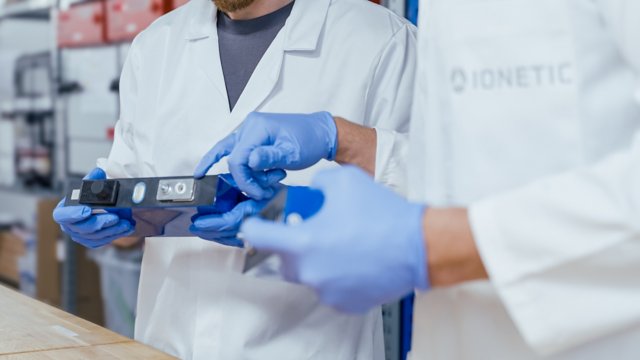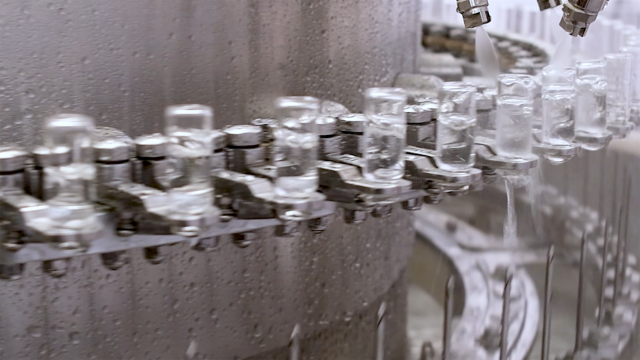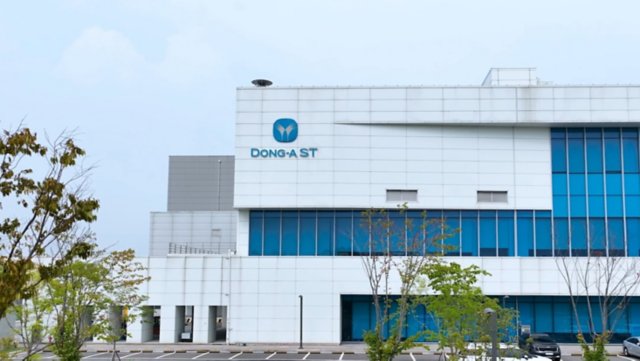Educating new users and the research conducted with Arena simulation software is invaluable to us. This is one reason why we will continue to offer Arena software to academic users at a significant discount. In order to enable us to continue our academic program, we take our end user license agreement (EULA) very seriously and expect our users to abide by the established academic use of the software for strictly educational and research purposes. This document is meant to provide guidelines for using Arena software academic licensing.
Arena Student Simulation Competition Winners Demonstrate Their Models
Arena Simulation Software is the #1 Choice of Academic Institutions Worldwide
Hundreds of universities and colleges worldwide use Arena software. In fact, it is taught in more institutions worldwide than any other discrete-event simulation software tool on the market. It is also used by the majority of Fortune 100 companies and has a global user base that reaches 350,000 and continues to grow annually.
The Educational version of Arena software provides value by introducing students to the principles of simulation. In addition to individual student and laboratory licensing, there is also an educational research package designed to meet all simulation research needs.
Why Teach Arena Simulation?
The goal of university education is to provide students with the knowledge and practical experience they need to begin their professional careers. Arena software is the most widely-used and comprehensive discrete event simulation software in the world. Companies consider experience with Arena simulation software to be a differentiator and a competitive advantage when making hiring decisions.
Arena simulation addresses the variety of academic needs and challenges any student or organization may face. Whether it be simulation labs, student projects, graduate, or post-graduate research, Arena software is the best choice for simulation software training.
The Arena Advantage for the Classroom
With Arena simulation software training, students are introduced to the principles of simulation and will enhance their problem-solving skills by conducting effective simulation modeling, analysis, and research projects. Simulation concepts are understood quickly and easily through a simple flowchart modeling approach.
For professors whose teaching materials and examples require more than the Arena Student version, universities and academic institutions can license the Arena Academic Laboratory package based on Arena Professional Edition, plus OptQuest. This 30-User license includes all building blocks and add-ons available in Arena but eliminates system boundaries or limitations for examining, modeling, and solving problems. If you need more than 30 users, it’s not a problem. We would be happy to quote a system that meets your laboratory needs.
This package includes concurrent network licensing, allowing license management via a server. Network licensing allows you to set permissions and control license distribution on your network. It also permits lab administrators to copy the software and distribute to students for installation on their personal machines. This gives students the ability to use a current version in labs that may not coincide with the Simulation with Arena textbook edition. These unlicensed versions can be used for academic, non-commercial purposes only.
Instructors who adopt the Simulation with Arena textbook as required course material are eligible for valuable benefits, including:
- Course materials, including PowerPoint presentations that correspond with textbook chapters
- Examples and exercise models with solutions
- Eligibility for students to download Arena from the McGraw-Hill website at no charge with the purchase of the textbook
The Arena Simulation Advantage for Academic Researchers
The Arena simulation software research package is designed for professors and graduate students who are performing independent or graduate-level academic research. This package is a one-seat license that includes a dongle key for easily transferring the license across machines. Professors, masters and Ph.D. candidates can acquire a temporary Single-User Arena Academic license. This offering is based on the Arena Professional Edition software, plus OptQuest. There is no model size or functionality limit with this package. The academic version can be used for non-profit research outside of the classroom setting, where the primary goal of the research is to solve a general problem and results are publicly shared and published. Research outside of these parameters—including for-profit or outside of the classroom setting, where research is conducted to solve a specific organization’s problem—is not permitted.
Research package requirements include:
- Software can be used for valid research purposes only. Commercial use of this software is strictly prohibited
- User must sign and return the academic agreement documentation prior to purchase
- Following academic research, the user must provide a link or copy of the publicly shared research paper
- Any published research must acknowledge or reference the use of Arena simulation software in the publication
For license and fee information or other program details, contact us at arena-education@ra.rockwell.com
Arena Simulation Software Academic Offerings
One of the many reasons why Arena simulation software is the choice of so many worldwide universities and colleges is that it offers choices to meet the needs of all academia.
- The Arena Student version provides the functionality of Arena Professional Edition, with only a limit to the size of the models that can be built.
- The Arena Research Package is designed for professors and graduate students who are performing independent or graduate-level academic research.
- The Arena Academic Laboratory package is for professors whose teaching materials and examples require more than the Arena Student version. Universities and academic institutions can license based on Arena Professional Edition, plus OptQuest for optimization.
All educational versions are based on the Professional Edition package. This package includes all of the functionality that Arena simulation has to offer.
Take a look at the comparison table and choose the best offering to meet your academic requirements.
| Option | Student Version | Academic Research | Academic Laboratory |
|---|---|---|---|
| Number of users | 1 | 1 | 30 |
| OptQuest for Arena | |||
| Arena Professional Edition | |||
| Network capable | |||
| Model size limitations | |||
| Access to selected online help | |||
| Access to Arena tech support | |||
| Access to teaching materials | |||
| Commercial use restrictions | |||
| Price | Download Free Trial | Contact Us | Contact Us |
Guidelines for Academic License Use
An academic license may be purchased by any accredited institution where the main focus is on educating students and/or providing research. Many commercial organizations also have an academic component that offers training or teaching, such as service companies and hospitals. The organization’s focus cannot be on supporting external systems, such as non-profit / for-profit hospitals, technology institutes, or think tanks.
Unless education is the primary service delivered by the institution, it will be considered to be commercial unless prior written authorization from Rockwell Automation is obtained.
Academic Users
Use of the license seats are bound to the college/department that has purchased the seats (for example, if the engineering department purchased the seats, the software can be used only by that college, not shared with the business college). Only currently enrolled and/or registered students and currently employed professors and staff within the purchasing college/department are authorized to use Arena academic software. This includes currently enrolled and/or registered students who are currently enrolled in a course in the license-owning college or in a multidisciplinary course included in the license-owning college. Upon request by Rockwell Automation, you agree to provide proof of such enrollment and/or employment.
IMPORTANT: These guidelines are provided for your convenience only. Please refer to the Arena Academic License Guidelines document in the EULA for specific license rights. Should there be any question or confusion on valid use of Arena Academic licensing, please contact your local sales representative for guidance.
Examples of Acceptable Use
Qualified Students
- Lab exercises and/or homework as part of a classroom-related assignment and/or project.*
- Undergraduate and/or senior projects that are not-for-profit and are part of a classroom-related project.*
- Graduate and/or doctorate theses that are not-for-profit and are part of a classroomrelated project or degree requirement.*
* Except any uses specifically prohibited by this document.
Qualified Professors and Staff
- Instruct students in the use of simulation and/or problem-solving methods and techniques
- Research conducted not-for-profit, where the research is intended to solve a general problem with the results being publicly shared and published. For instance:
- Creation or establishment of an algorithm and/or heuristic associated with solving a generic supply-chain problem, with said research published in professional journal.
- Evaluating general business processes and/or priority schemes to improve patient flow in hospital emergency departments.
- Data and visuals (including displaying animations that use file types like .avi, .wav, etc.) of a running model may be presented as part of an analysis that is a part of a publicly
- Shared document (e.g., contained within a publicly published thesis or paper).
Examples of Unacceptable Use
- Any commercial, professional, commercial training or other for-profit use.
- Cooperative education and/or internship work. It is the responsibility of the sponsoring organization to maintain valid commercial licensing.
- Any research conducted for an organization (internal or external) to solve a specific problem for that organization where the end result is a solution for that organization and not a publicly published paper. For instance:
- Determining the specific inventory levels and thresholds for a manufacturer.
- Evaluating the number of staff required at a university hospital.
- Determining the number of parking spaces required for a university expansion.
- Any distribution of the model (.doe), program file (.p), templates (.tpl and .tpo)
- For-profit or focused research conducted for an organization that currently owns an equivalent license. In this instance, the license owned by the organization should be used, not the academic version.

You may also be interested in





